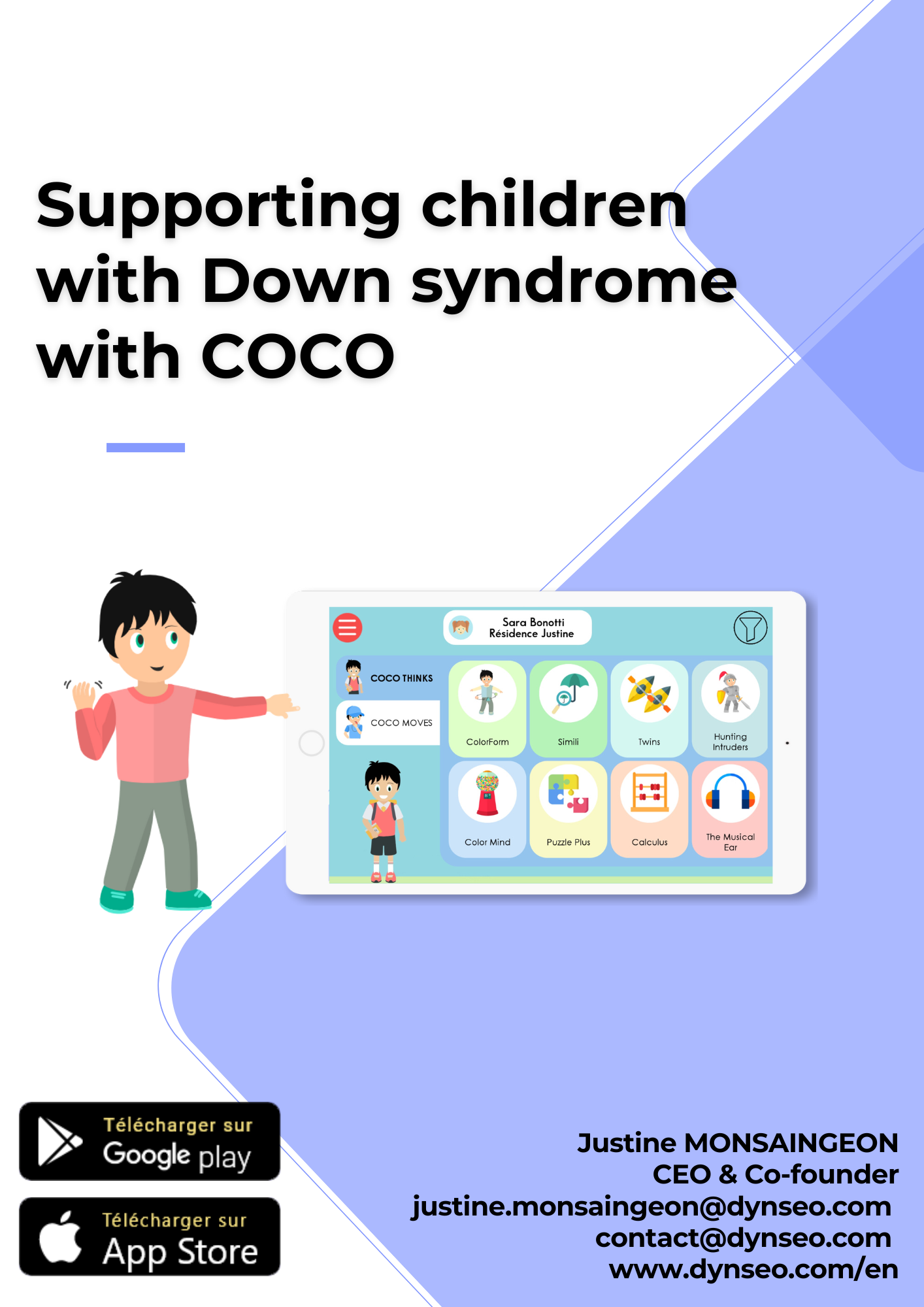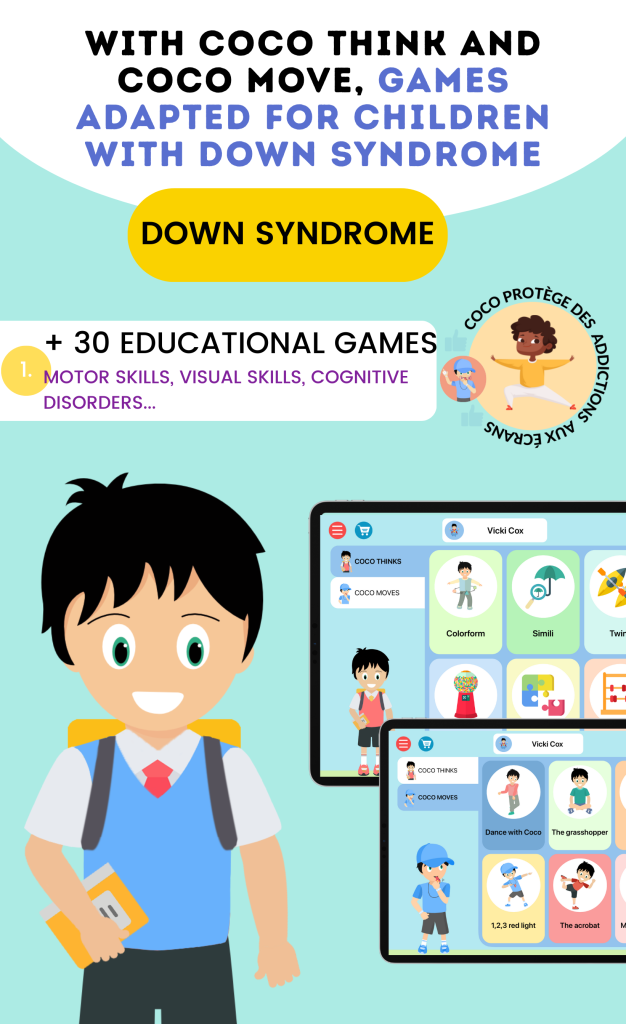Creating a Supportive and Inclusive Work Environment
Creating a supportive and inclusive work environment requires deliberate effort, centered on understanding, empathy, and respect for diversity. To build such a culture, organizations must prioritize initiatives that celebrate differences and ensure that every employee feels valued and empowered.
1. Fostering Awareness and Education
Provide comprehensive training sessions that educate employees about Down Syndrome, highlighting the unique strengths and challenges faced by colleagues.
Encourage open conversations that address misconceptions and promote empathy.
Share success stories and positive examples to inspire inclusive attitudes.
2. Implementing Inclusive Policies
Develop flexible work arrangements tailored to individual needs, such as adjustable hours or remote work options.
Introduce mentorship programs that pair employees with Down Syndrome with experienced colleagues for guidance and support.
Organize team-building activities designed to encourage collaboration and strengthen interpersonal relationships across diverse groups.
3. Encouraging Open Communication
Create safe spaces where all employees feel comfortable sharing their ideas, concerns, and perspectives without fear of judgment.
Promote active listening and constructive feedback to foster mutual respect and understanding.
Facilitate regular check-ins to ensure ongoing support and address any challenges proactively.
4. Leveraging Diverse Talents
Recognize and celebrate the unique skills and contributions that individuals with Down Syndrome bring to the workplace.
Assign meaningful tasks and responsibilities that align with employees’ strengths and career goals.
Encourage cross-functional collaboration to integrate diverse viewpoints and enhance creativity.
5. Benefits of an Inclusive Environment
Improved morale and job satisfaction among all employees.
Enhanced team dynamics through increased cooperation and mutual respect.
Greater innovation and problem-solving capacity driven by diverse perspectives.
Positive organizational reputation that attracts and retains top talent.
Conclusion
By fostering a culture rooted in awareness, inclusivity, and open communication, organizations can create a work environment where individuals with Down Syndrome thrive alongside their colleagues. This approach not only supports personal and professional growth for everyone involved but also drives overall organizational success and productivity.
Providing Appropriate Accommodations and Support
To effectively empower young adults with Down Syndrome in the workplace, it is essential to adopt a proactive approach that emphasizes tailored accommodations and continuous support. By recognizing individual strengths and addressing specific challenges, organizations can create an environment where these employees can thrive.
1. Tailoring Job Responsibilities
Customize tasks and roles to align with each individual’s abilities and interests, maximizing their potential for success.
Simplify complex tasks by breaking them down into manageable steps to reduce overwhelm and increase confidence.
Utilize visual aids, checklists, or color-coded systems to enhance clarity and ease of task completion.
2. Providing Accessible Resources
Offer clear, concise, and simplified instructions both verbally and in written formats to ensure understanding.
Incorporate assistive technologies such as speech-to-text software or reminder apps to support task management.
Create a structured work environment that minimizes distractions and supports focus.
3. Ongoing Support and Development
Schedule regular check-ins between supervisors and employees to discuss progress, challenges, and goals.
Provide constructive feedback in a positive and encouraging manner to foster growth and confidence.
Encourage participation in training or skill-building workshops tailored to individual needs.
4. Establishing Open Communication
Create a safe and supportive space where employees feel comfortable expressing concerns, asking questions, and seeking assistance.
Encourage managers and coworkers to practice active listening and demonstrate empathy.
Promote collaborative problem-solving to address workplace challenges effectively.
5. Benefits of Accommodations and Support
Increased job satisfaction and employee engagement.
Enhanced productivity and quality of work.
Strengthened employer-employee relationships built on trust and respect.
A workplace culture that values diversity and inclusion.
Conclusion
By providing appropriate accommodations and consistent support, organizations can empower young adults with Down Syndrome to succeed professionally while contributing meaningfully to the team. This commitment not only benefits the individuals but also enriches the entire workplace by fostering a culture of inclusivity and mutual respect.
Identifying and Leveraging Individual Talents and Skills
To effectively support young adults with Down Syndrome in the workplace, it is essential to adopt a personalized approach that focuses on identifying and leveraging their unique talents and skills. Recognizing these strengths not only empowers individuals but also enriches the entire organization.
1. Personalized Assessment and Discovery
Conduct individual assessments to understand each person’s abilities, interests, and areas of passion.
Engage in open conversations with the employee to learn about what motivates them and where they feel most confident.
Use observation and feedback from supervisors and colleagues to gain a well-rounded understanding of the individual’s skills.
2. Aligning Roles with Strengths
Design job responsibilities that match the employee’s natural talents and interests, increasing engagement and satisfaction.
Offer varied tasks that allow the employee to apply different skills, fostering continuous growth and development.
Adjust workflows to emphasize areas where the employee excels while providing support for challenges.
3. Creating Opportunities for Skill Showcase
Assign projects or roles that enable employees to demonstrate their abilities in meaningful ways.
Encourage participation in team meetings, presentations, or brainstorming sessions to share their ideas and perspectives.
Recognize and celebrate accomplishments publicly to boost confidence and motivate ongoing contributions.
4. Promoting Inclusive Team Dynamics
Foster a workplace culture that values diversity and encourages all team members to learn from one another.
Provide mentorship or buddy programs to support skill development and social integration.
Facilitate collaboration that highlights each individual’s strengths, leading to innovative solutions and improved outcomes.
5. Benefits of Leveraging Individual Talents
Enhanced employee motivation and job satisfaction.
Improved productivity through role alignment with skills and interests.
Strengthened team cohesion and diversity of thought.
A workplace environment that celebrates individuality and promotes equal opportunities.
Conclusion
By identifying and actively leveraging the talents and skills of young adults with Down Syndrome, organizations can create a more inclusive, dynamic, and effective workforce. This approach not only empowers individuals to reach their full potential but also drives innovation and success throughout the organization.
Building Communication and Social Skills
Developing strong communication and social skills is essential for young adults with Down Syndrome to thrive in the workplace. These skills help them express their ideas clearly, build positive relationships, and navigate social dynamics effectively. As employers and colleagues, we can support this growth through intentional training, opportunities, and encouragement.
1. Communication Skills Training
Workshops and Group Activities: Organize sessions focused on practical communication techniques, such as active listening, clear verbal expression, and appropriate body language.
Role-Playing Exercises: Use simulated workplace scenarios to practice conversations, presentations, and conflict resolution in a safe environment.
Visual and Written Supports: Provide visual aids, cue cards, or written instructions to reinforce learning and facilitate understanding.
2. Encouraging Social Interaction
Team-Building Activities: Facilitate collaborative projects and exercises that require cooperation and communication among team members.
Informal Social Opportunities: Create chances for casual interaction through team lunches, coffee breaks, or social events to help build rapport and friendships.
Mentorship Programs: Pair young adults with experienced colleagues who can model social norms and provide guidance in social settings.
3. Creating a Supportive Social Environment
Foster Inclusivity: Promote a workplace culture that values diversity and encourages respect, patience, and understanding.
Encourage Peer Support: Empower colleagues to be welcoming and supportive, helping new employees integrate smoothly.
Celebrate Social Successes: Recognize and reinforce positive social interactions to boost confidence and motivation.
4. Benefits of Strengthening Communication and Social Skills
Improved self-expression and confidence in workplace interactions.
Stronger relationships with colleagues, leading to better teamwork.
Enhanced ability to navigate workplace challenges and conflicts.
Greater overall job satisfaction and retention.
Conclusion
By intentionally supporting the development of communication and social skills, we create an inclusive work environment where young adults with Down Syndrome can succeed both professionally and personally. Encouraging their growth in these areas not only benefits the individual but also enriches the entire workplace culture.
Fostering independence and self-advocacy

Fostering Independence and Self-Advocacy
Promoting independence and self-advocacy in young adults with Down Syndrome is fundamental to their empowerment and long-term success in the workplace. By encouraging autonomy and helping them develop the skills to express their needs, we support their ability to take control of their professional and personal lives.
1. Encouraging Independence
Opportunities for Decision-Making: Provide tasks and projects where they can make choices and take responsibility, fostering confidence in their abilities.
Problem-Solving Skills: Teach strategies for identifying challenges and exploring solutions independently, with guidance as needed.
Gradual Increase of Responsibilities: Start with manageable tasks and progressively offer more complex duties to build competence and self-reliance.
2. Teaching Self-Advocacy
Communication Training: Help young adults learn how to clearly express their needs, preferences, and concerns in various workplace situations.
Role-Playing and Practice: Use simulated scenarios to practice asking for help, negotiating accommodations, or providing feedback constructively.
Education on Rights and Resources: Inform them about their workplace rights and available supports, empowering them to seek assistance confidently.
3. Creating a Supportive Environment
Encourage Open Dialogue: Foster a culture where questions and requests are welcomed and respected by colleagues and supervisors.
Mentorship and Peer Support: Pair individuals with mentors who can guide them in building advocacy skills and independence.
Positive Reinforcement: Acknowledge efforts and successes in self-advocacy and independent work to motivate continued growth.
4. Benefits of Independence and Self-Advocacy
Increased confidence and motivation in the workplace.
Enhanced ability to navigate challenges and communicate effectively.
Greater job satisfaction and personal fulfillment.
Preparation for broader life skills and future opportunities.
Conclusion
By fostering independence and self-advocacy, we equip young adults with Down Syndrome with the tools necessary to thrive as active, confident contributors in their work environments. Supporting these skills not only benefits the individuals but also enriches the workplace by promoting a culture of respect, empowerment, and inclusion.
Addressing Stigma and Promoting Diversity in the Workplace
Addressing stigma related to Down Syndrome in the workplace is a crucial and ongoing responsibility. It requires intentional efforts to challenge and change preconceived notions, fostering a culture of acceptance and respect for all employees.
1. Recognizing and Challenging Stigma
Identify Stereotypes and Misconceptions: Acknowledge common biases and misunderstandings about Down Syndrome that may influence workplace attitudes.
Encourage Open Dialogue: Create safe spaces for employees to share their experiences and ask questions without fear of judgment.
Promote Awareness: Use regular communications and workshops to educate staff about Down Syndrome and the value of neurodiversity.
2. Implementing Diversity and Inclusion Initiatives
Diversity Training Programs: Develop comprehensive training that covers the importance of inclusivity, the benefits of diverse teams, and practical strategies for respectful interaction.
Inclusive Hiring Practices: Beyond recruitment, ensure that hiring processes and criteria are accessible and equitable for individuals with Down Syndrome.
Celebrate Differences: Recognize and honor diverse backgrounds and abilities through events, campaigns, and storytelling to reinforce a culture of inclusion.
3. Building a Supportive Workplace Culture
Leadership Commitment: Leaders should model inclusive behavior and openly support diversity initiatives.
Employee Resource Groups: Encourage the formation of support networks or affinity groups that promote community and shared advocacy.
Feedback Mechanisms: Implement systems for employees to report discrimination or bias confidentially and receive prompt responses.
4. Benefits of Promoting Diversity and Addressing Stigma
Enhanced Innovation: Diverse perspectives foster creative problem-solving and drive innovation.
Improved Employee Engagement: Inclusive environments boost morale, loyalty, and productivity.
Stronger Team Dynamics: Acceptance of differences leads to better collaboration and mutual respect.
Positive Organizational Reputation: Companies known for inclusivity attract top talent and earn community trust.
Conclusion
Addressing stigma and actively promoting diversity in the workplace is essential for creating an environment where individuals with Down Syndrome—and all employees—feel respected, valued, and empowered. Through education, open communication, and inclusive policies, we can transform our workplaces into spaces that celebrate differences and leverage them for collective success.
Collaborating with Community Resources and Support Networks
Collaboration with community resources and support networks plays a vital role in enhancing the workplace experience for young adults with Down Syndrome. These partnerships provide essential support and open doors to additional opportunities that contribute to their overall growth and success.
1. Establishing Partnerships with Local Organizations
Identify Specialized Agencies: Connect with organizations that focus on disability support, vocational training, and advocacy for individuals with Down Syndrome.
Leverage Expertise: Tap into their knowledge of best practices for inclusion, workplace accommodations, and skill development programs.
Access Training and Mentorship: Utilize community-led workshops, job coaching, and mentorship programs tailored to the needs of young adults with Down Syndrome.
2. Creating Holistic Support Systems
Extend Support Beyond the Workplace: Collaborate to ensure individuals have access to resources that address their social, emotional, and professional needs outside of work.
Family and Caregiver Involvement: Engage families and caregivers by connecting them with community services that provide ongoing support.
Facilitate Networking Opportunities: Encourage participation in community events and social groups that foster connections and personal growth.
3. Enhancing Inclusivity through Collaboration
Resource Sharing: Pool knowledge, tools, and materials between workplaces and community organizations to create richer learning environments.
Coordinated Efforts: Work together to develop individualized plans that support career advancement and workplace integration.
Advocacy and Awareness: Partner on campaigns and initiatives that promote public understanding and acceptance of individuals with Down Syndrome.
4. Benefits of Community Collaboration
Expanded Support Network: Provides a safety net that helps young adults navigate challenges both professionally and personally.
Increased Opportunities: Opens pathways for education, training, and employment that might otherwise be unavailable.
Strengthened Confidence and Independence: Empowers individuals through continuous support and access to diverse resources.
Conclusion
Collaborating with community resources and support networks enriches the workplace experience for young adults with Down Syndrome by offering comprehensive, individualized support. As we combine efforts across workplaces and communities, we foster environments where these individuals are empowered to thrive. By embracing empathy, inclusivity, and partnership, we can create workplaces and communities that celebrate diversity and unlock the full potential of every individual.




